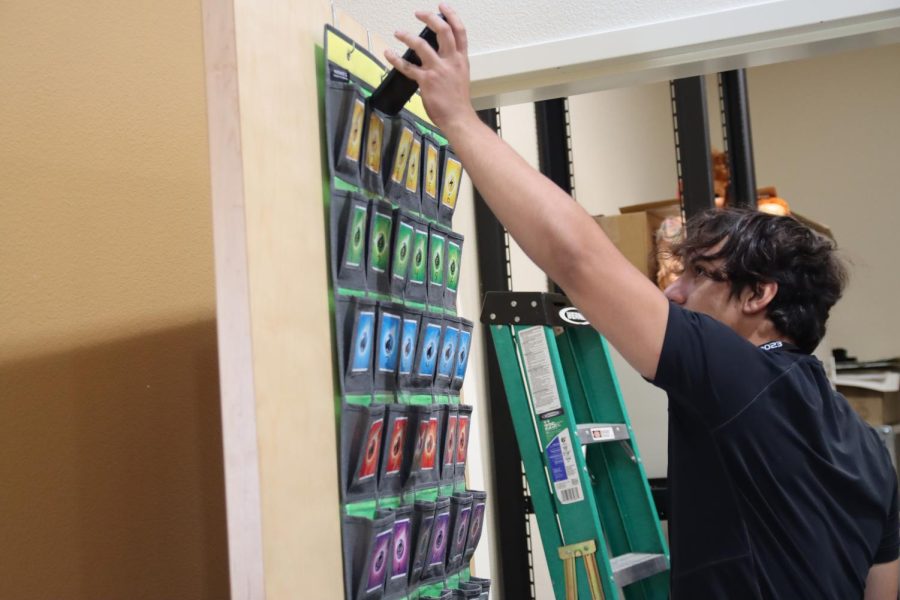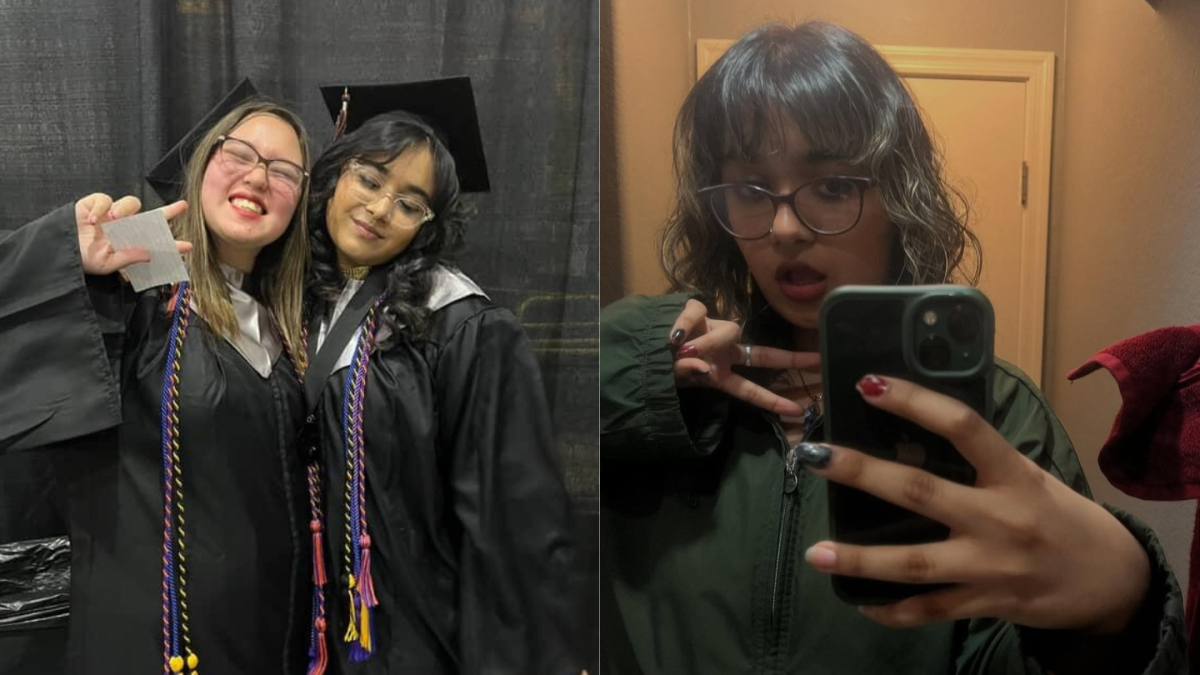REEVALUATED PERSONAL DEVICE POLICY ESTABLISHES NEW CLASSROOM EXPECTATIONS
Teachers, administration have begun implementing new restrictions
Following Digital Game Design teacher Ronald Barranco’s rules, junior Kevin Fernandez places his phone into a pocket before class starts. Each class has different rules on monitoring phone usage. “Sometimes it can be a distraction so I think it’s reasonable to have them away during instruction,” Fernandez said. “But I personally think it should be okay to use them during independent time since it can help students concentrate and feel comfortable in class.”
September 21, 2022
After both increasing safety issues and disturbances in classrooms, schools in CCSD have been heavily enforcing the Personal Technology and Communication Devices policy.
The policy, which was last revised in 2013, allows for school principals to decide when personal devices can be used during the instructional day. On August 3, teachers and administration discussed the usage of devices and what changes, if any, should be made.
“The faculty decided that cell phone and headphone use in the classroom is not allowed unless otherwise specified in the teacher’s lesson plans,” Assistant Principal Kendra Kelley said. “I believe that this classroom expectation will make a difference in learning because students will no longer be distracted during instruction.”
Students have mixed opinions on the policy, as it can both positively and negatively affect their learning and productivity.
“It can sometimes promote being productive because you don’t have any distractions, [but] I think it can be annoying sometimes,” junior Kevin Fernandez said. “Some teachers take it too far by taking phones away at the beginning of class, which I believe restricts our freedom as students.”
Along with cell phones, headphones and personal laptops are also prohibited from use in classrooms.
“Headphones are the bane of my existence as a teacher,” Hospitality teacher Catherine Viggato said. “I tell [students] at the beginning of class to take them out and put them away. However, students still think they can put it in as if their hair is some sort of force field that’s going to cover it. It might be for a little while, but I’m going to find it sooner or later. I might call on that student, and they won’t acknowledge me at all.”
Another concern that may not be taken seriously is using headphones during drills and in the quads.
“They do not help in case of an emergency,” Assistant Principal Cameron Roehm said. “The headphones could cause a barrier to hear crucial messaging. Headphones could also cause damage to the inner ear for negative life-long effects.”
However, many students believe listening to music is essential to their learning.
“I think we should be able to have [our] headphones on during class unless it’s [during] a lecture,” sophomore Selma Mehakovic said. “During self assigned work time we should be able to listen to music, or during testing because it helps [me] concentrate better if there’s something there to keep me going.”
Most students don’t dispute that the use of phones can be disrespectful and disruptive to other students’ learning environment.
“[Students] are not utilizing their brains,” junior Sahar Koshan. “All of them just have their airpods in and they’re just zoned out. It’s very disruptive to kids who are trying to work on a group project. They’re not using any critical thinking, or utilizing their full potential, and it’s really difficult for people to focus on their tests because they’re so used to the stimulation. ”
Each classroom’s procedures vary based on how teachers want to enforce the policy.
“I tell students that they may check their phone if family emergencies exist,” Communications teacher Henry Evans said. “[But] that they first disclose to me so that I know to expect them on it. Their usage should not be frequent, and only to check if they have received a call/message. If students are simply perusing Instagram or whatnot, they receive a warning. The second time, I take the phone away because it can be a distraction to other students, and disrespectful to me or other speakers.”
Teachers hope this policy can teach students how to make better, academic use of their phones.
“Can [phones] be useful? Of course,” Viggato said. “However most students don’t know how to use it correctly. These rules I hope help students realize the distraction their phone is actually creating. I hope they use them as a tool in the future, and not something that they just go on social media for.”









